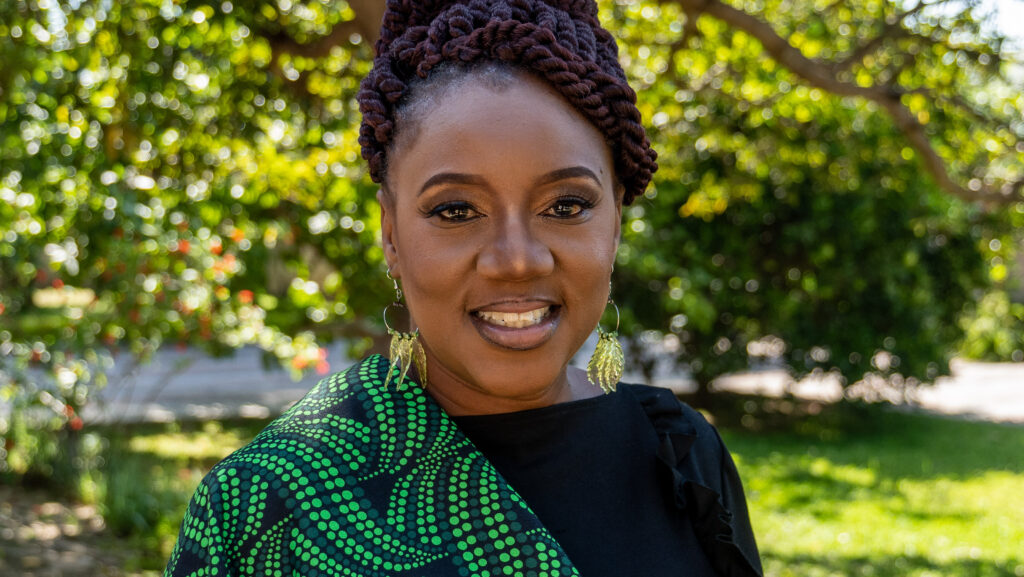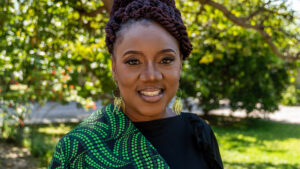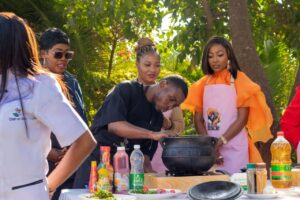Mazyanga Lucy Mazaba Liwewe is a mother of five (including her son in-law) and a grandmother to two beautiful girls. Mazyanga is a passionate Public Health Officer and Researcher with over 27 years’ experience in public health including laboratory diagnostics particularly in virology, epidemiology, strategic communication, risk assessments, surveillance and outbreak response, as well as research. She is a prolific scientific author, reviewer and editor. She has published over 140 scientific articles (with over 80 as first author) including research papers, editorials, chapters in books and provided editorial services to various journals. She has published 5 books, 3 of which she was the principal investigator. Mazyanga is an ardent strategic and crisis communications expert capable of engaging and communicating with policy, program and public stakeholders. A renowned public speaker who ably engages her listeners in conferences, meetings, events and through media platforms. Growing interest in mental health and Social Behavioral change communication. She prides in leading new set-ups and partnerships and is privileged to be in the lead team that established and operationalized the Zambia National Public Health Institute (ZNPHI) and Africa CDC Southern Africa Regional Collaborating Center. She is also responsible for establishing and is inaugural editor of The Health Press Zambia, a public health bulletin of the ZNPHI.
Mazyanga continues to make significant contributions to the global, regional and national public health agenda through confirmation of diseases and outbreaks, providing scientific evidence for policy direction, program evaluation and public consumption. She sits on various local and international working groups and participates in institutional and collaborative research. She is also a philanthropist, subsistence farmer, and enjoys baking, flower gardening, sport and keeping fit. Mazyanga is an award winner having received the Stanbic Bank Zambia Anakazi Women in Health Award on 26th March 2022. She recently participated in organizing the Conference for Public Health in Africa (CPHIA) 2023 as co-chair of the Conference Secretariat. The international meeting hosted 5,100 plus delegates including organizational leads and Ministers of Health.
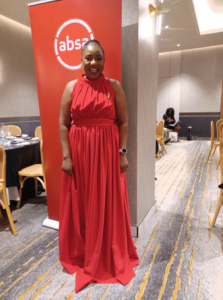
1. Can you share with us the inspiration behind your passion for public health and your extensive experience in the field?
My career in health started with a nudge by my career’s guidance teacher during my 12th grade to apply into the school of Natural Sciences rather than School of Humanities in a pursuit to study Law.
“Mazyanga, you should pursue a career in Science of Health as that is where your strength lies” said Mrs Chinanda.
So, I went in as advised, fortunately easily qualifying into the School of Natural Sciences and graduated with a Bachelor of Science Biology & Chemistry double major. I then got an opportunity to pursue medical laboratory science at the University Teaching Hospital.
As I churned out evidence of disease in individuals and outbreaks, I got interested in linking it to population health and pursued a Masters of Science in Epidemiology followed by a Doctorate of Science in Public Health. My intellectual curiosity and passion around solving complex health problems applying scientific research, data analysis, and innovative strategies to address public health challenges and improve health outcomes pushed my quest to pursue a career in public health.
My passion in Public Health is personal and multifaceted, reflecting a combination of my personal and organizational experiences, values, and aspirations for improving the health and well-being of communities locally, nationally, and globally.
I am continuously fascinated by the dynamics of population health, including epidemiology, biostatistics, and health behavior, and the space of public health offers me opportunities to study and address health issues at a population level rather than focusing solely on individual patients.
In the last 26 years, I have grown from being a young scientist tasked to diagnose patient conditions, confirming the cause of outbreaks and monitoring disease control and elimination programs, to a senior scientist and public health practitioner specialized in strategic communication, partnerships, and public health security.
2. As a prolific scientific author and editor, what drives you to contribute to the scientific community and share your knowledge through publications?
Scientific writing is my passion. Interestingly, my first two or so submissions were rejected, but influenced by my mentors, I did not stop there. I have been writing on various subjects around public health including but not limited to epidemiological research articles, behavioral, and mental health.
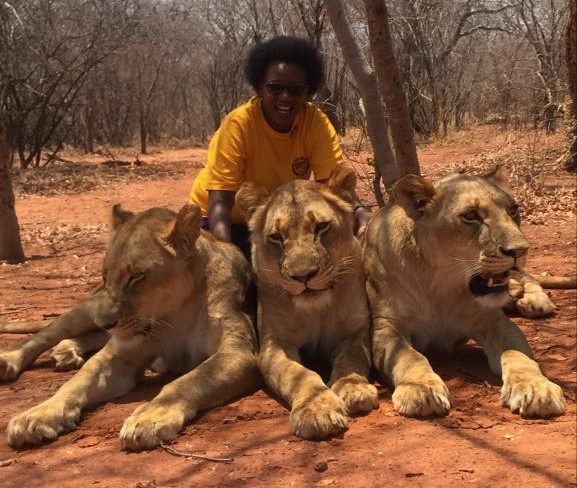
I am passionate about influencing policy decisions and advocating for evidence-based interventions, and because public health offers opportunities for advocacy and policy change to create healthier environments and promote public health initiatives, I am happy sitting in this area of health.
My writing is also aimed at influencing policy, program management, and importantly individual and community behavior. I am privileged to contribute to public communication by drafting high-level press and policy statements.
3. Could you share some of the significant contributions you have made to the global, regional, and national public health agenda through disease confirmation, outbreak response, and providing scientific evidence for policy direction?
My Masters and Doctorate research is around Rubella. Rubella, while usually a mild disease, has detrimental effects in pregnant women who are unimmunized to rubella, causing loss of pregnancy or children born with serious congenital malformations.
My studies have added a lot of information to the situation of rubella in Zambia that can also inform policies in the country and beyond. I know my work contributed to the decisions by the Zambian Government to implement routine vaccination against rubella and instigate further studies. I have also been invited to sit in with the South African Technical Working Group discussing rubella immunization in South Africa.
I play key roles in drafting research and program proposals and document results through reports, scientific articles, policy briefs, and public statements. Prior, my article on Dengue in Zambia was the first publication in the country. I was also one of the lead scientists who surveyed and documented the situation of yellow fever and other arboviruses in 2013. I have done reviews, research, and led outbreak investigations that have influenced policy decisions and served as a reference point or citation for many scientists globally.
In 2016, I was given the privilege to start up the public health bulletin of the Zambia National Public Health Institute as the Editor-in-Chief following a competitive interview.
In 2017, I was tasked with the role of interim focal point for the Africa CDC Southern Regional Coordinating Center (Africa CDC SA-RCC). As part of a dynamic team led by the Director, we launched and operationalized the Africa CDC SA-RCC. Handed over to permanent staff in 2019, I still remain the focal point for Zambia. The Africa CDC SA-RCC is the most successful RCC on the continent, and I claim my contribution to this effect.
4. How do you manage your various roles and responsibilities, including your philanthropic work, farming, and personal interests, while maintaining a successful career in public health?
Tough one indeed and can be stressful; however, over the years, I have learnt to compartmentalize my life. I have 4 children, a son-in-law, grandchildren, and elderly parents to put my attention on. My youngest son is 13, and his siblings are much older than him, so I must still play mum.
All this, I still find space to do other things I also love. I am a Rotarian and belong to Tangent Club Zambia, an after-club of Ladies Circle Zambia, all philanthropic organizations. I individually contribute to the bigger pots of financial and technical resources required to improve the lives and livelihoods of many. I also support others in my individual space and organizations such as the church. Because I enjoy these spaces, it seldom feels like a burden.
Studying is like a hobby rather than a requirement, and so I have always found space to pursue different academic and professional training. The farm is a space great for physical and mental therapy, so yes, a bearable place to be. I have also found myself in the space of mentorship but allocate non-conflicting space. I know in some spaces I am referred to as a busy bee. I would rather be it than lead a docile life. Compartmentalizing my activities while remaining sane remains key.
5. In your opinion, what are the key barriers that women face in pursuing leadership positions, and how can these be overcome?
As women, we face various barriers in pursuing or achieving leadership positions, many of which are deeply rooted in societal norms, organizational culture, and systemic biases.
We often encounter unspoken bias and stereotypes that perceive us as less competent or suitable for leadership roles compared to men.
Our roles in family well-being cannot be overlooked. Women often face greater caregiving responsibilities, such as childcare and eldercare, which can impact their ability to pursue careers and leadership roles that require long hours or extensive travel.
Overcoming these barriers requires concerted efforts at multiple levels, including addressing structural inequalities, promoting diversity and inclusion, and providing support and mentorship opportunities. In addition, celebrating and showcasing diverse role models can help break down barriers and encourage more women to pursue leadership positions.
6. As a strategic and crisis communications expert, how do you leverage your skills to advocate for gender equality and women’s rights within the public health discourse?
As a strategic and crisis communications expert advocating for gender equality and women’s rights within the public health discourse, there are several strategies one can employ. Personally, some of the strategies I have employed include but are not limited to:
(i) Crafting clear and persuasive messages that highlight the importance of gender equality and women’s rights in achieving optimal public health outcomes, and publishing them on my social media spaces or speaking at formal and social discussion spaces;
(ii) Providing training, mentorship, and capacity-building initiatives to empower women leaders or leader trainees, advocates, and healthcare professionals to effectively communicate their messages, navigate media interactions, and engage in advocacy efforts. As a mentor, I pride myself in fostering a supportive environment for skill development and knowledge sharing.
7. How do you envision the future of women in public health, and what steps can be taken to ensure more representation and opportunities for women in leadership positions?
There are a lot of women in public health already, but not enough of them in leadership positions. However, the political and general public’s will towards supporting gender equity and equal opportunities is improving over time. In my workplace, two out of six directors translate to 33% being women, and a similar picture presents at middle management. To change this setup, advocacy for policy changes that promote gender equality and women’s rights in public health is essential.
To increase representation and opportunities, continued capacity building towards leadership through training, skills development, and mentorship cannot be overemphasized. Zambia introduced STEM schools, and it would be important to promote STEM education for girls, providing mentorship opportunities, and offering professional development courses tailored to the needs of women in the field.
There are women-focused organizations such as Women in Global Health that must be supported to assist in training and mentorship towards leadership development.
8. As a member of various charitable organizations, what specific initiatives have you been involved in that directly address the well-being and empowerment of women and girls?
As a young member of Ladies’ Circle in Zambia, I originated the proposal to support the prevention and control of malnutrition in Zambian children, which was both health facility and community-based. I saw a lot of young mothers who we supported with health education. At the community space, we supported the Kamanga community-based organization to assist young mothers in managing the wellbeing of their children.
As president of the Rotary Club of Kusinta, while the project was focused on WASH in rural Mazabuka, we provided space to develop skills for both women and men in the community around WASH and gardening.
I have also been engaged in various conversations around young ladies providing mentorship in leadership.
9. What advice would you give to young women who aspire to make a difference in the field of public health and overcome gender-related obstacles they may encounter along their journey?
There is generic advice that one as a young woman must follow if they are to advance in the field of public health including: believing in oneself; finding one’s passion; improving one’s educational and skills status; seeking mentorship and support; as well as getting your capacities noticed.
In my personal space, working in my area of passion, improving my academic and skills capacities, learning from others, and recently showcasing my successes has helped me overcome a number of gender-related obstacles. I am not scared to speak to men.
10. Looking ahead, what are your future aspirations and goals within the public health sector, and what projects or collaborations are you currently excited about?
As a professional in the public health sector, my future aspirations and goals are driven by a commitment to improving the capacities of young women to be global health leaders by being part of communities focused on addressing health disparities and promoting equitable access to healthcare resources.
Under Women in Global Health, I am now an official mentor. Beyond this, I am networking and engaging with various organizations to support leadership training and growth among youth, particularly females. I have unofficial mentees whom I am pushing to aspire for leadership positions.
I am willing to be a public health leader who will push an agenda on equitable and equal opportunities in public health leadership. As one of my lecturers, Prof. Chabwela, said – “If by the time I die, there is no one to replace me, then I have failed as a human being.”
My ultimate leadership goal is to have many replacements to Dr. Mazyanga Lucy Mazaba.
